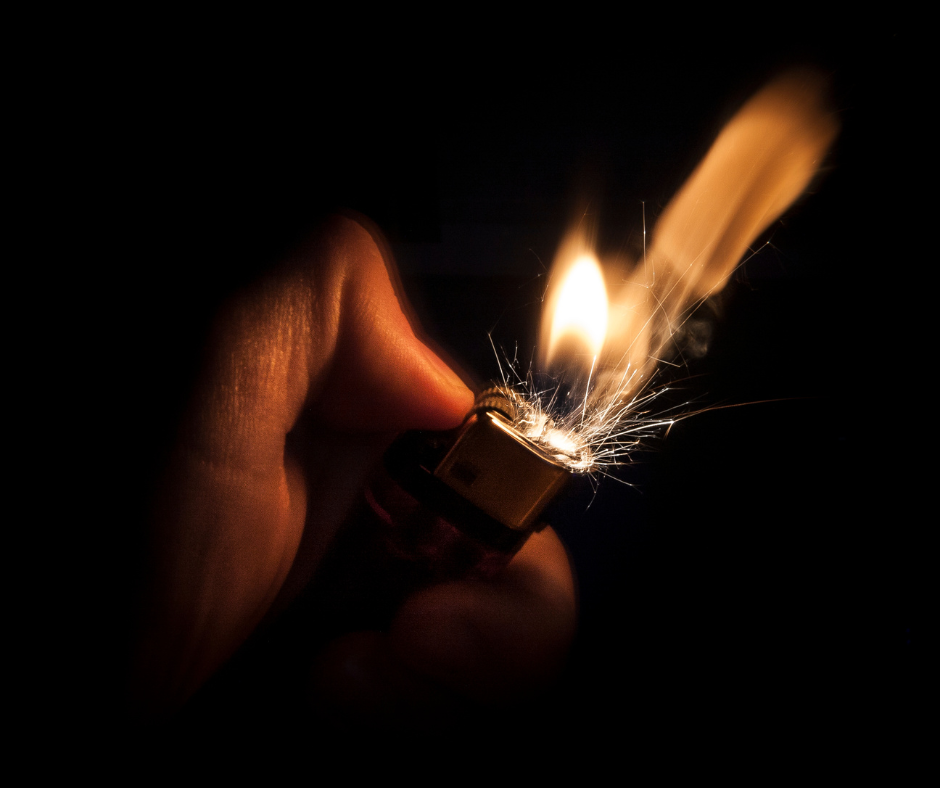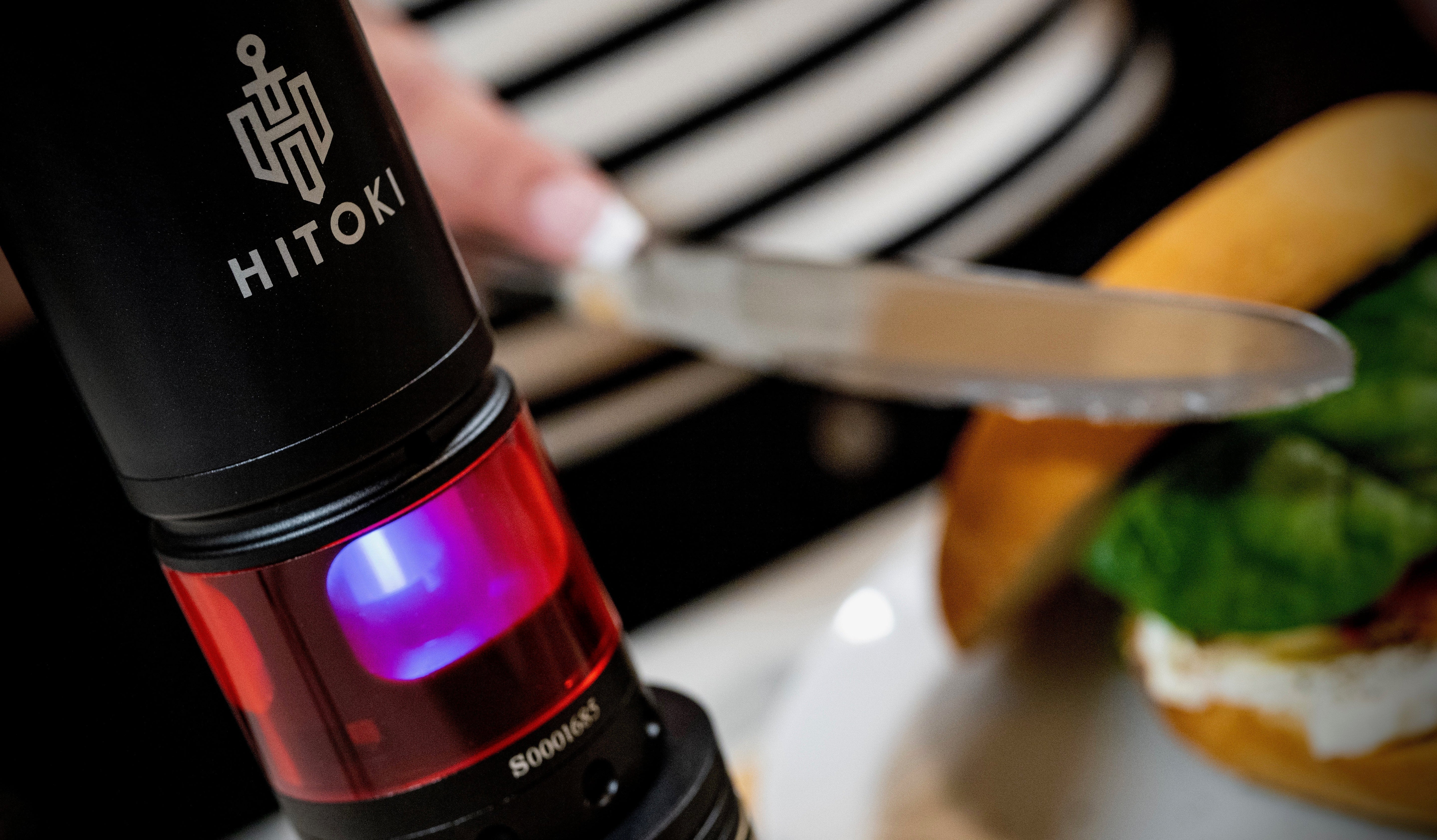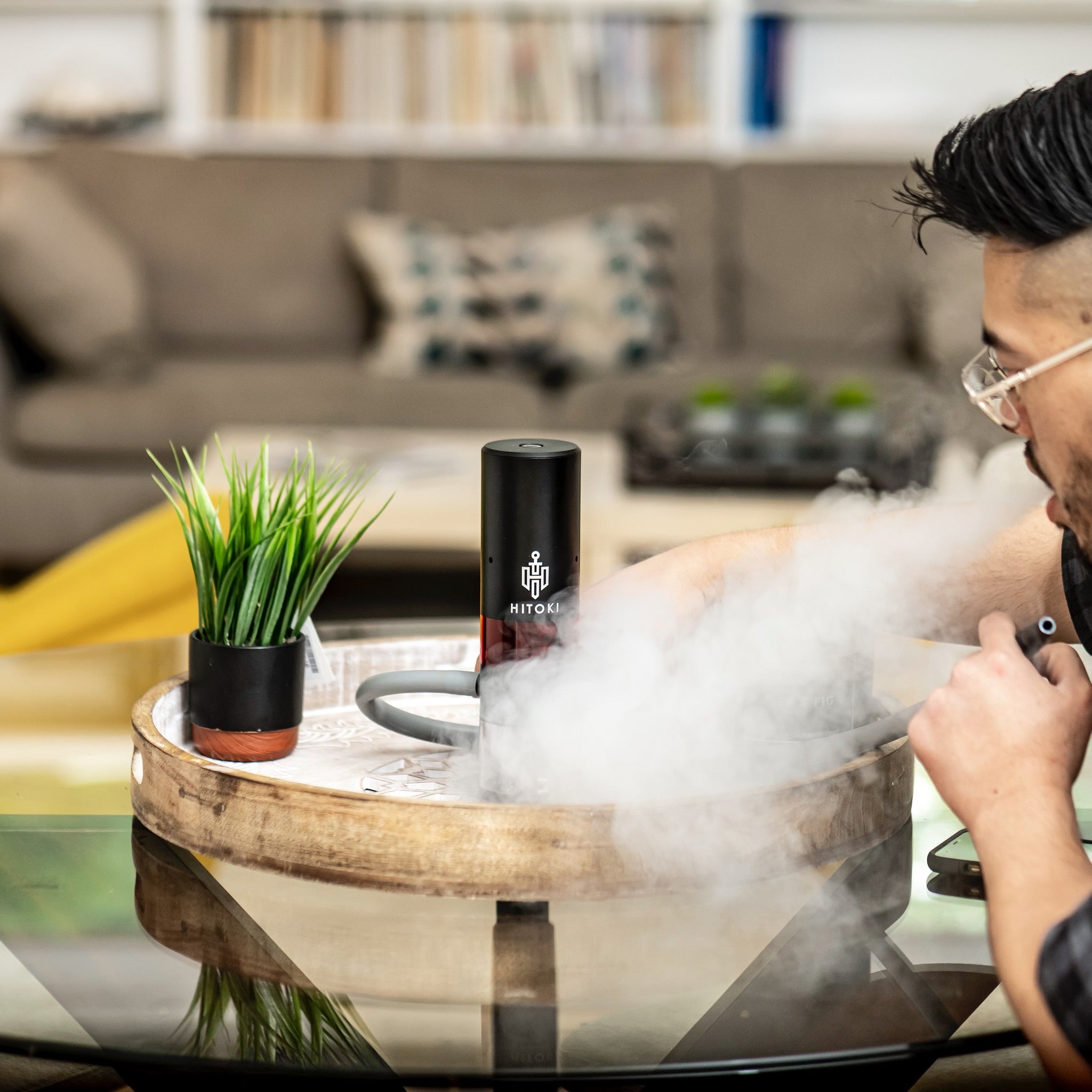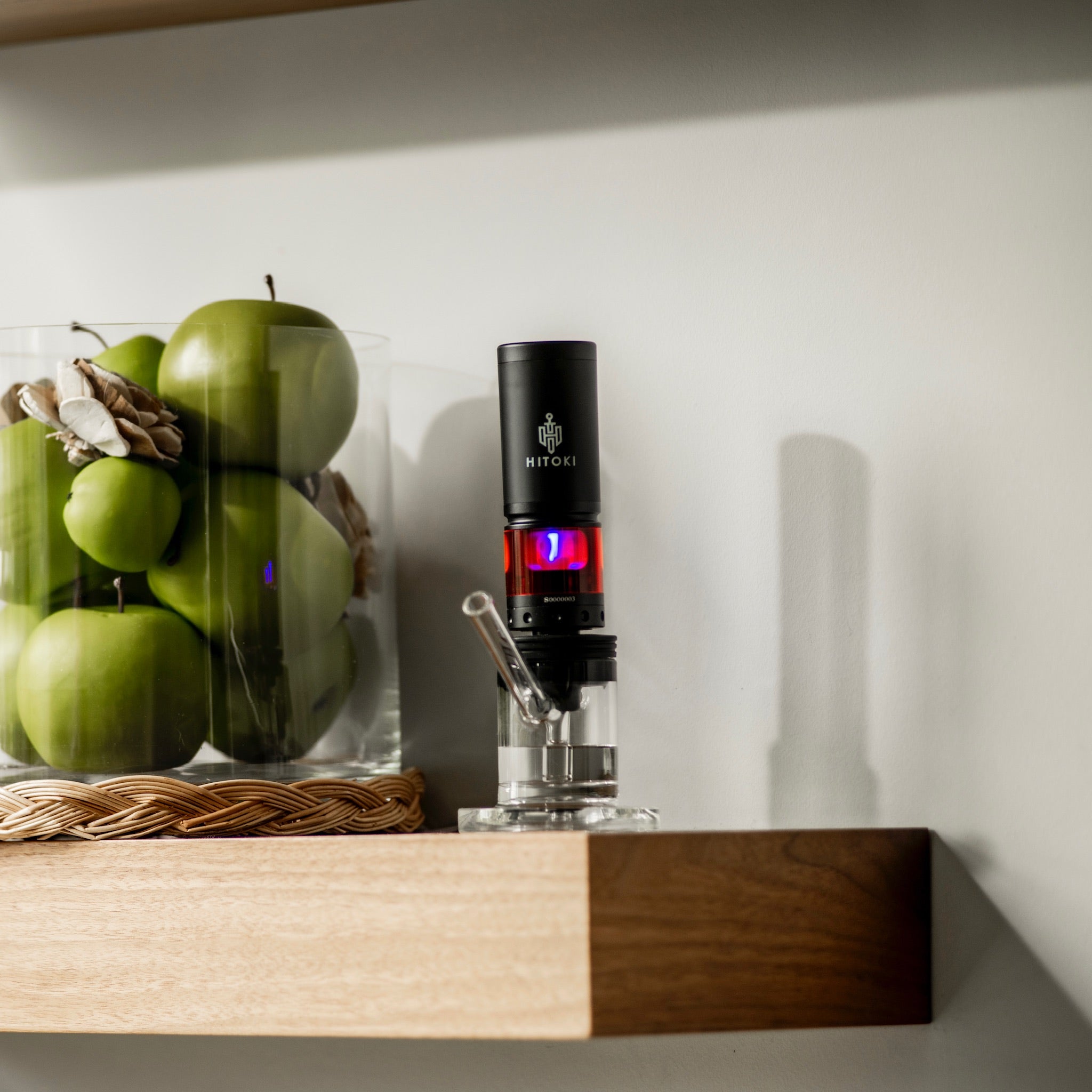It doesn’t matter if you just started or have long been a cannabis user, you know that lighters using butane are the most popular, convenient, and affordable method for igniting the weed in your bong. Also known as butane lighters, they are accessible, portable, and easy to use. All that you have to do is place the lighter near the joint tip and click the lighter wheel. After it sparks and lights the cannabis, you can turn it off. It’s just like lighting a cigarette.
However, a lot of smokers also do not like the taste left by a butane lighter. The experience is often impacted by the fumes. It is also not the healthiest option as inhaling butane regularly over a long period can cause several health-related effects.
What is Butane?
Butane is a liquefied gas that was first identified in 1864 after industrial chemist Edmund Ronalds found hydrocarbons in crude petroleum. Alongside propane and ethane, Ronalds identified butane as a variable element of petroleum. It was commercialized in the 1910s by chemist Walter O. Snelling.
Also known as n-butane, this liquefied gas is odorless, colorless, and very flammable. Although it has a cleaner burn compared to coal and gasoline, it is dangerous and intoxicating if misused or inhaled. Once inhaled, the fumes go through the lungs and into your bloodstream. The fumes can also affect your central nervous system.
Inhaling butane has short- and long-term effects.
Two Types of Butane Inhalation
Butane inhalation is categorized according to exposure duration or frequency. It is important to know the difference between the two as they have different health effects and risks.
Acute exposure or inhalation is when it happens once only. The symptoms or physical reactions are quick to show up, so you’ll know immediately what medication is needed.

Chronic or ongoing exposure is when the smoker is regularly exposed to butane over a longer period. Those who are chronically exposed will not see the effects right away as the changes take long to show up.
Both types of exposure will affect your overall health, but prolonged butane inhalation has deep-seated effects that can become long-term and life-altering health issues.
It is important to note that when used properly, butane fumes are safe and will not have any physical or psychological effects. When used for daily activities, such as when grilling steaks or hotdogs, the gas reacts with oxygen, and it will then produce water vapor and carbon dioxide.
Short-Term and Long-Term Effects of Butane Inhalation
The immediate effect that you will feel after inhaling n-butane is a euphoric “high” or a feeling similar to getting drunk or intoxicated. Other effects that show up in a matter of minutes include:
- Blackouts/Unconsciousness
- Hallucinations
- Convulsions
- Confusion
- Reduced coordination
- Slurring of the speech
- Short-term memory loss
- Sedation
- Aggressiveness
The health effects that take time to show up but will stay with you for a longer period include:
- Tinnitus
- Depression and anxiety
- Frequent or chronic coughing
- Nosebleed
- Breathing difficulties
- Weakened muscle coordination
- Sinusitis
- Chronic headache
While butane is generally non-toxic (even when inhaled), if a smoker or bong user regularly inhales high concentrations of the fumes, they can experience several negative reactions. Remember that when you inhale the fumes, you get exposed not only to gas but to the byproducts of combustion as well.
Most of the deep-seated health impacts are related to the central nervous and respiratory systems:
- Effects on the central nervous system include confusion, headaches, drowsiness, dizziness, and other narcotic-related symptoms. If a person is inside an area with little to no ventilation, the effects will be more prominent or noticeable.

Smokers who use their bongs inside confined spaces can be deprived of oxygen and this can lead to nausea and fatigue, among other similar symptoms. In extreme cases, a bong user can also become unconscious.
Butane is identified as a depressant for the central nervous system.
- Complications on the respiratory system can turn into lifelong conditions, depending on the consistency and level of exposure. These health impacts include asthma and COPD or chronic obstructive pulmonary disease. When a smoker inhales the compounds that come from the combustion, such as carbon monoxide, their respiratory system becomes irritated.
- Excessive butane inhalation can also lead to cardiac-related complications. Smokers who have undergone heart-related procedures, as well as those with existing cardiac issues, are the ones most affected by the fumes. However, anyone who inhales the butane fumes can develop symptoms, such as palpitations and arrhythmia, which can develop into fatal risks in the long run.
- Inhaling butane from lighters regularly may also impact a person’s cognitive health. The most common impacts include learning and memory loss due to brain cell damage.
- If the butane is not immediately removed from the body, a person’s vital organs can become damaged over time. Those with a weak immune system will also become more susceptible to illnesses and infections.
Butane dependency is also possible, but this usually happens to people to inhale the liquefied gas directly from the can or its container.
Additionally, when a person deliberately inhales butane, they can immediately develop SSDS or Sudden Sniffing Death Syndrome. This involves cardiac arrhythmia and is characterized by irregular heartbeats and is the most common cause of death connected to butane inhalation. A person with gets into a physical activity, such as sports or when working out, will startle or excite their heart and this can lead to the organ’s failure to pump blood.
Guidelines for Safe Usage to Minimize Butane Fumes Exposure
There are several things that you can do to protect yourself from the harmful effects of butane fumes. Safe usage can also minimize fumes exposure. Here are some things to consider if you want to keep using butane lighters in the safest way possible:
- Do not inhale butane directly from its container. Do not try butane inhalation, not even once.
Likewise, avoid using it near a lighted cigarette or naked flame.
- If you need to use your butane-fuelled lighter and bong, do so in a fully ventilated space. This will help minimize the fumes swirling in the air around you.
The best thing to do is to use your bong in an outdoor area. Smoking in an enclosed room or area will make you more susceptible to the central nervous system and respiratory impacts of butane fumes.
- Moderate your bong use. Using it for long periods or continuously will increase your exposure to the gas and its dangerous byproducts.
It also helps to pay attention to the ignition instructions in your user's manual.
- Familiarize yourself with the basic symptoms of butane fumes inhalation so you will know what to do immediately once you start to feel the symptoms. The first thing to do is to find an open area where fresh air is abundant. Seek medical help.
- Use safer devices, such as laser bongs and vaporizers. These are cannabis smoking devices that do not use butane or produce combustion byproducts.
Treatment for people exposed to butane fumes is similar to those given to patients who use stimulants. Aside from administering CPR (in cases where breathing difficulties have set in), it is also important to keep the person calm or relaxed. Avoid causing excitement or surprise.
Cognitive and focused therapy, as well as psychosocial support, is also essential for the complete healing of an individual exposed to butane fumes.
Alternatives Methods
Devices that need butane lighters are the ones that increase your risk of developing the symptoms and medical conditions indicated above. So, if you want to safely enjoy every cannabis smoking experience, your first step should be to switch to the cleaner and safer method. There are two options available to you: hemp lighters and laser bongs.
A hemp lighter or hemp wick not only gives you smoother and more flavorful hits, but it also steers you away from dangerous butane fumes. When you light a hem wick, it will burn only until it is put out. You can light it with a lighter, but a match is the safer alternative. Just place the wick near your bong and keep it lighted until combustion happens. You can then put it off.
An alternative to hemp wick that works just right is spaghetti noodles.

For many cannabis bong users, the laser bong is the best alternative to butane lighters. It is laser-powered so the combustion process does not produce fumes butane fumes. It’s cleaner and the hits are smoother and more flavorful as well. Its laser technology is also more reliable and precise when it comes to igniting herbs.
Laser bongs are not only health and environment-safe but they are also classy and elegant. They are the best embodiment of style, function, and efficiency.
Conclusion
Butane-powered cannabis smoking devices may be more affordable than laser bongs, but they will cost you more once you start to experience the life-altering and painful symptoms of butane inhalation. If you want to invest in a bong that not only delivers precise flavors and hits but also keeps you and your environment safe, your only option is to switch to laser bongs. Hemp wicks are also a better alternative to butane, but they are not as clean and precise as laser bongs. Check out the Hitoki Trident if you want to start your cleaner bong journey now.






Share:
Unlock the Full Potential of Your Hitoki Trident: Expert Tips and Tricks
Your Ultimate Guide to Hitoki's Trident Laser Smoking Device: Top FAQs Answered by Experts